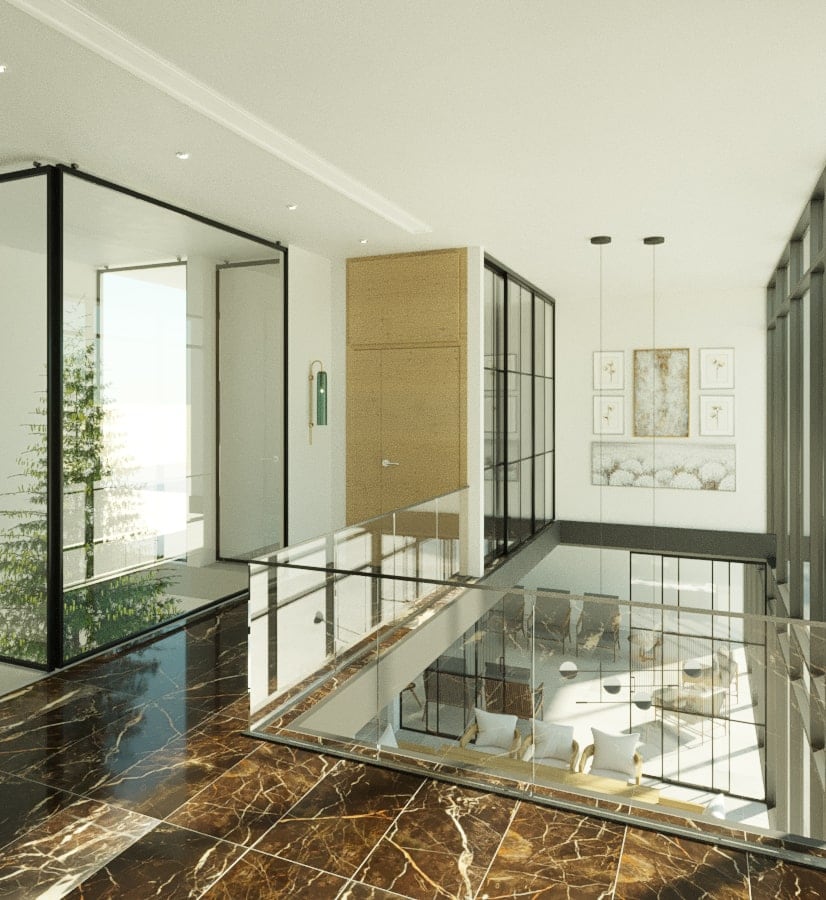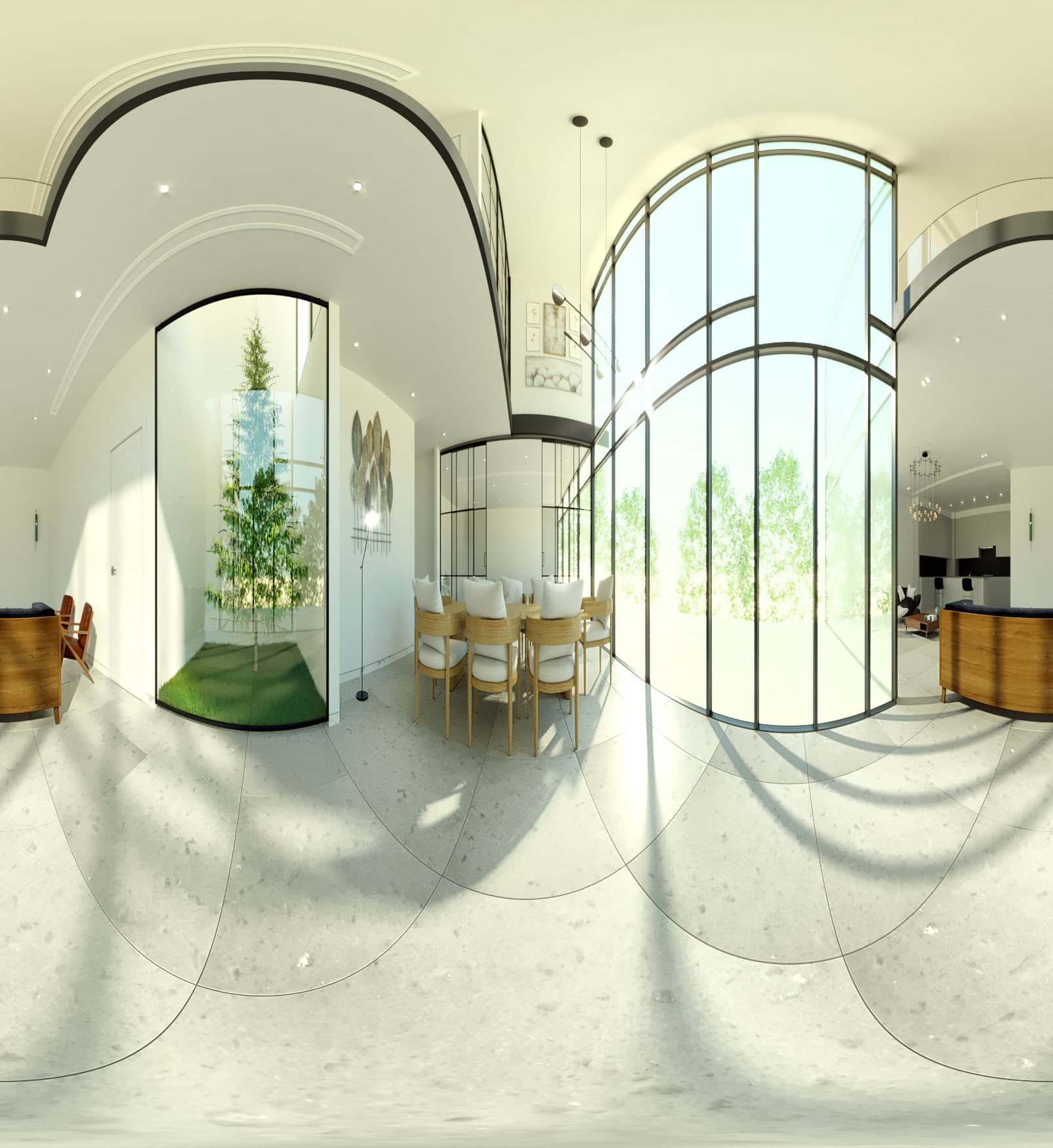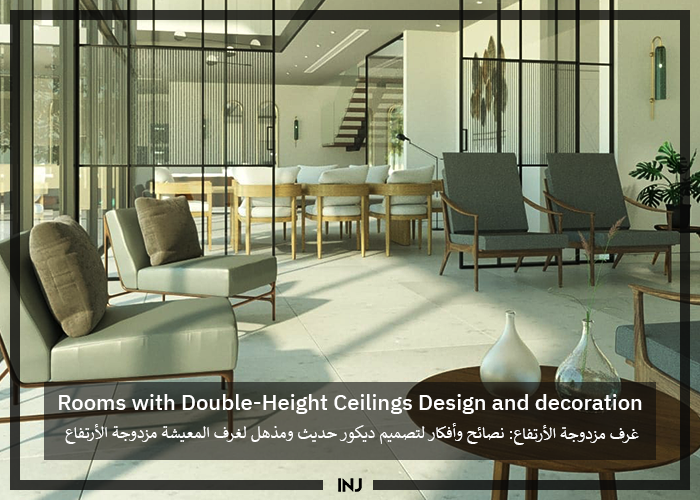How would you pass judgment on a house? By its beauty or its functionality? Yet, over and beyond, space is the factor that can attract any person and the architects as well. Today, the latest architectural trend is creating a double-height living room.Rooms with Double-Height Ceilings adds a lot of excitement to your home. A typical roof measures around 10-12 feet high, but a double-height living room would be twice the standard height. A double-height living room feels more open and spacious. Your living rooms will look substantially broader than ever.
This kind of plan in living rooms gives a practical benefit and an aesthetical look to the rooms. It is a strategy for making spaces and characterizes a focus that captures the attention. A fundamental element is a surface and design plans that give a brilliant roof design.
Double Height Element
Implementing double height is a technique that utilizes enormous spaces during home extensions. Also, the demonstration of a focal point that catches the eye is an unquestionable requirement. Decorative and texture components are of high importance. These elements are essential to give an incredible and inventive look. Because of the double-height design plan, the walls play a significant part. These play a role in turning into an entirely different design board where you can be clever or creative.
The double height has turned into a mark of modernization because of the enhancement of space it creates. From living rooms with upper admittance of a sitting place to libraries, rooms, and exceptional workplaces set apart by ‘high’ roofs. A double-height living room in a house is a strikingly significant element, hoisting the architectural plan and functionality given to the room.

Reasons of People Loving Rooms with Double-Height Ceilings
Presently, there are many facts about why people incline towards double-height living rooms. However, the choice of which design plan to execute relies upon the size of the space to be covered. For example, if you assemble a 30-foot-long room, a standard eight-foot roof will feel exceptionally short, and the room may look excessively vertical or weird. Making additional volume adds intricacy, character, and freshness to the environment. Also, it presents an engaging size.
For some people, these spaces assist them with enjoying the impact that the double-height roof gives to the living room and the sunlight that accompanies the design plan. There are a lot of justifications for why double-height living rooms have become famous while building:
· Causes the Space to Seem Bigger
High roofs and double-height living rooms can cause a typical place to show up as more open. It is a clever technique of creating a space that looks spacious and wide.
· Permits More Sunlight to Enter Inside
Generally, people can incorporate extra windows in the living rooms with double-height roofs. You get more sunlight that sparkles into your home, saving you power. So, it brings down the average cost for necessities.
· Brings Style Element
Double-height living rooms support creative design alternatives to be examined, which will make your home looks lavish. For instance, if you have a house with a chimney, you can assemble a delightful, tall stone wall that features a high roof instead of simply tossing over a standard one that looks too conventional. To add a calm appearance to your display, you can likewise try different things with more decent light switches that serve as a state of concentration.
· Improves Value & Facilitates Resale
A significant element that potential purchasers seem to appreciate is double-height space. If your home has a double-height living room, you can make some simple offerings to potential purchasers.
You may like this Design project : IMK Renovation Palace Interior Design

Tips to Make Your Rooms with Double-Height Ceilings Stand Out
To leave a strong impact in the interior of a double-height living room, feature the height and make it the center of the fascination of the room. Here are some tips that you can follow to make your double-height living room stand out:
· Hang Lamps Above
Hanging lamps from above is the most well-known approach to embellish a room, either it is typical or double-height. Try to choose the lights that will occupy the tremendous void space between the floor and ceiling. Furthermore, it becomes the point of focus to draw in the attention.
· Use Wood
Open spaces feel great, yet it is hard to brighten them. Also, it feels cold and uninviting sometimes. To make it warm and comfortable, design the upper area like a hallway. Also, load it up with the glow of wood and warm tones. Together they will acquire excellence and warmth that will occupy the room with comfort.
· Pay Attention to Details
The double-height living rooms have a colder feel than the ordinary-height rooms. Get the glow through the furnishings, outfitting, and decorations. Pay attention to the details to have a tremendous effect. Leather and velvet fill the living room with warmth and class. When coordinated with a delicate floor carpet under the feet, it brings out a magical feel. The sparkle of the long lights and the green-plants freshness in this area, painted with nude colors, makes it a great place.
For more informations, read also How to design a double height living room
Final Words
In the words of architects, a double-height area is when the roof is generally twice as high as the roofs of ordinary rooms. It gives open space and striking natural light to the property holders.
Double-height living rooms are astounding to have in a home, yet they’re not ideal for everyone, as some people might like the vibe of more modest, cozier spaces. Whatever your interests are, ensure to do some research and settle on a reasonable choice.
You can also follow more articles on ArchUp
